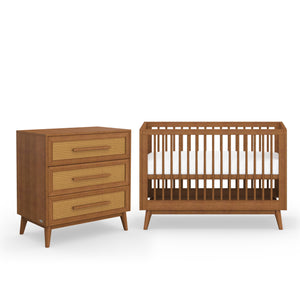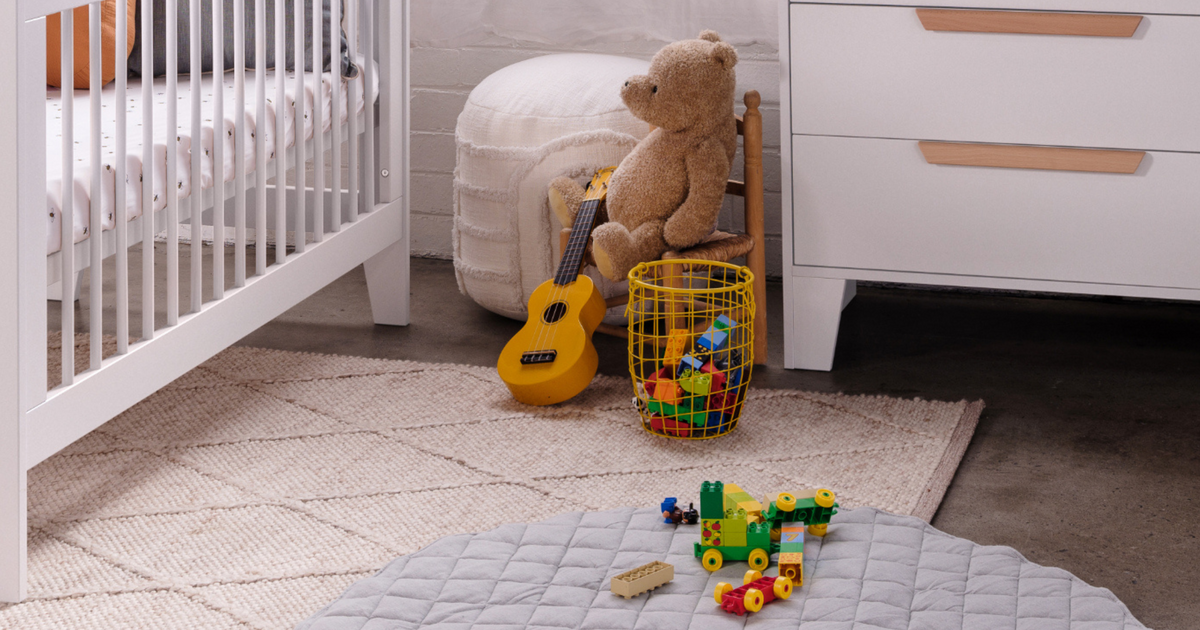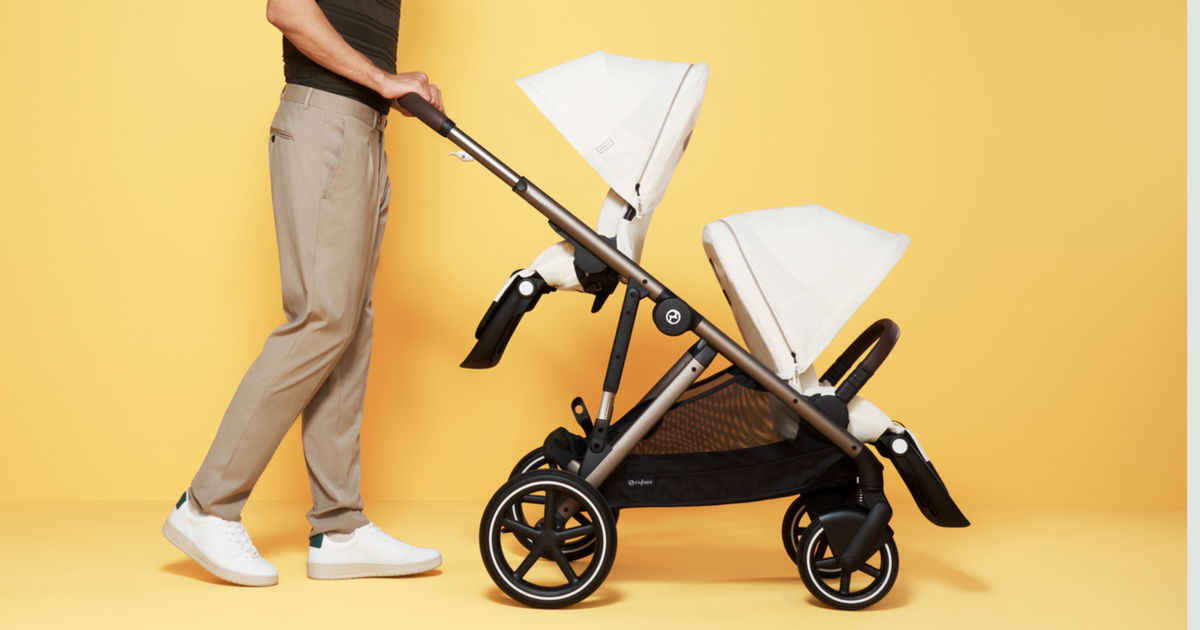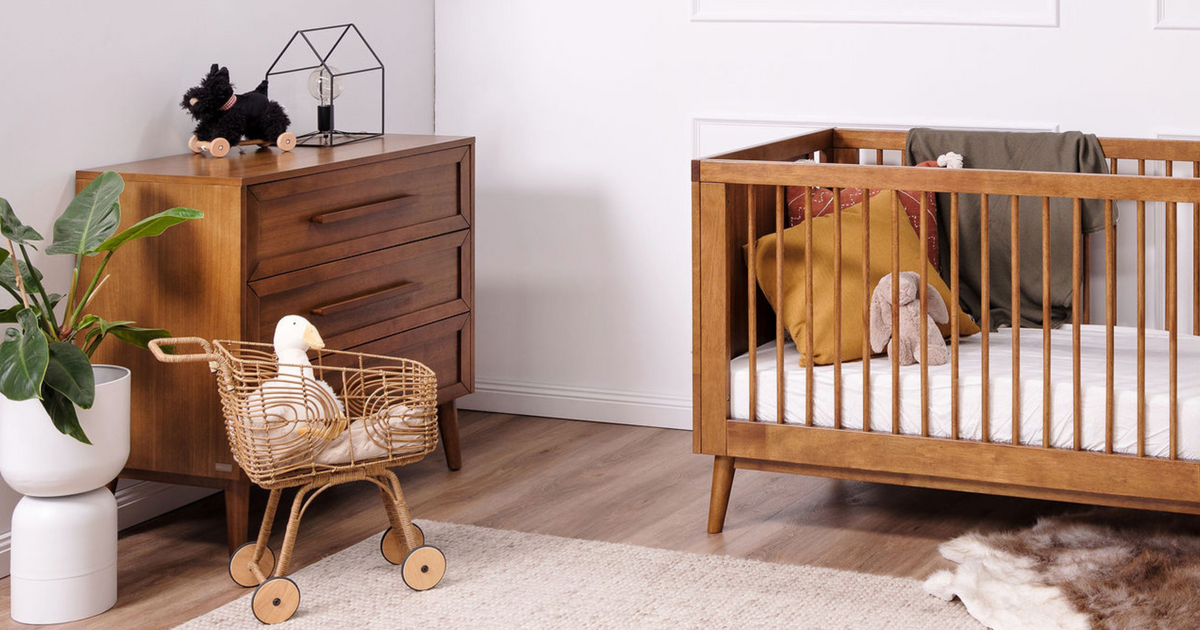Why rattan is an eco-conscious nursery choice
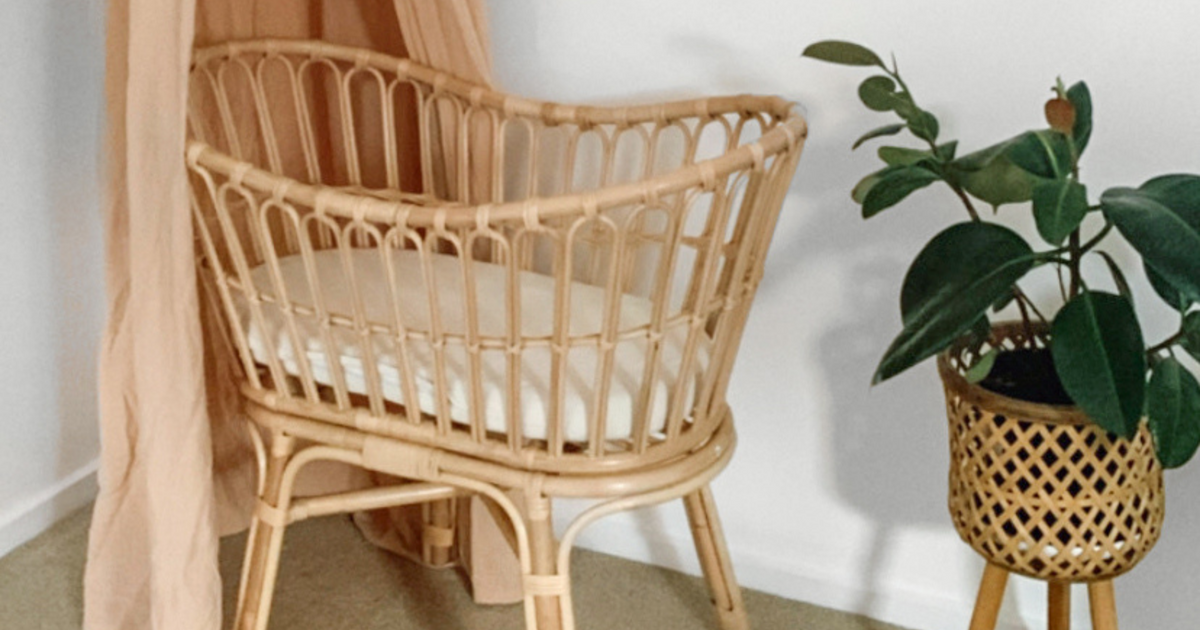
The word ‘unprecedented’ has been thrown around a lot lately regarding climate change. So much, in fact, that more and more people are reevaluating their carbon footprint and consumer habits. As a result, we’re seeing sustainable alternatives to everything from food, to clothes and household items gaining popularity.
It’s natural for parents in particular to be concerned about the world their children will be inheriting. If that’s you, why not begin making green changes in the nursery? Choosing local and investing in durable products that can be passed down to younger siblings (or even future generations) is a great place to start. One of the best things you can do however is choose sustainable materials.
What makes rattan a sustainable material?
While the rattan look has been ‘in vogue’ several times over the years and recently experienced a much-celebrated revival, you may not be aware that it is also a great eco-friendly material to look for in furniture pieces.
This is largely due to the rattan plant’s rapid growth and minimal water consumption. In contrast to many trees which can take up to 20 or 30 years to regrow, rattan can regenerate in as little as 5 to 10 years before it’s ready to harvest again. Faster growth means greater yield with less natural resources, making it a highly sustainable alternative.
Because rattan is significantly lighter than wood, transporting rattan furniture pieces throughout the supply chain also requires less fuel and accounts for fewer greenhouse gas emissions than many alternatives such as wood, metal or synthetic materials.
However, despite being lighter and more renewable than most, rattan is one of the strongest timber types, and has been used for baskets and bassinets for generations. While similar to bamboo in some respects, the rattan plant has a much stronger inner core and is not hollow.
Handcrafted by skilled artisans, rattan furniture also requires less machinery for production, adding to its green credentials. Furthermore, unlike its synthetic counterparts, rattan is a natural material, meaning it is 100% biodegradable.
It’s clear that from start to finish, rattan’s lifecycle makes it an excellent material for eco-conscious homes. In short, by choosing rattan you’re making a better choice for the environment and your baby’s future.
Read What makes bamboo bedding so great for babies? →
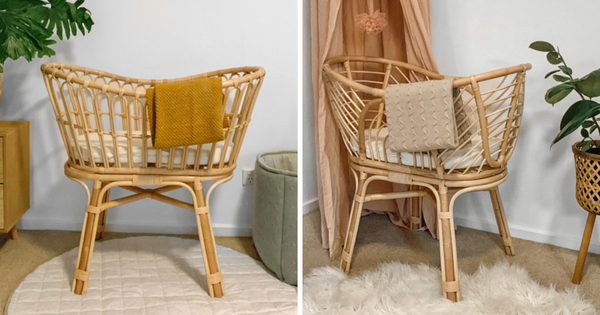
Above: Babyrest Olive Bassinet (left) and Daphne Bassinet (right).
Discover the Babyrest rattan range
For a natural nursery look without compromising on quality or safety, discover the all-new Babyrest Rattan Bassinets. Beautifully handcrafted by skilled artisans using the finest natural materials, the Babyrest Rattan Bassinet collection is the perfect blend of style and sustainability.
With 360° visibility from any side and maximum ventilation, the bassinets are designed to ensure a safe sleeping environment for baby during those precious first months so you can enjoy peace of mind.
The stunning handcrafted details and lines are sure to elevate your space and remain a special addition to any nursery for generations to come.
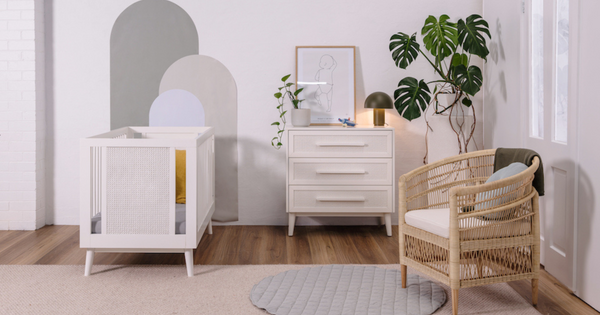
For a cot and chest with rattan elements, consider the beautiful Kaya collection, available in both White and Teak.
Blending effortlessly chic tapered legs, smooth lines with rattan accents, the collection unites functionality with tranquillity. Its organic elements give the Kaya warmth, offering versatility to suit your nursery whether it be coastal, boho or mid-century modern.
Featuring 3-in-1 functionality, the Kaya Cot is suitable from newborn to toddler, including the option to easily convert to a toddler bed or daybed with the Junior bedrail (separate purchase).
Stay tuned for even more Babyrest rattan furniture pieces, coming very soon!
Anstel has a team of passionate expert representatives. Get in touch with us today with any questions about baby and toddler sleep essentials.
Australian-made articles:
- Why choose Australian made?
- “A must have!” Why parents love Babyrest wool underlays
- How we make baby mattresses in Melbourne
- How we design baby mattresses (and other essentials)
Further reading:
- What makes bamboo bedding so great for babies?
- Should my newborn sleep in a bassinet or a cot?
- Tips for taking your newborn home from the hospital
- What most parents overlook when preparing for their new baby
- Boori vs Babyrest: Comparing their cots, mattresses and changing solutions
- How to know when your toddler is ready for a junior bed
